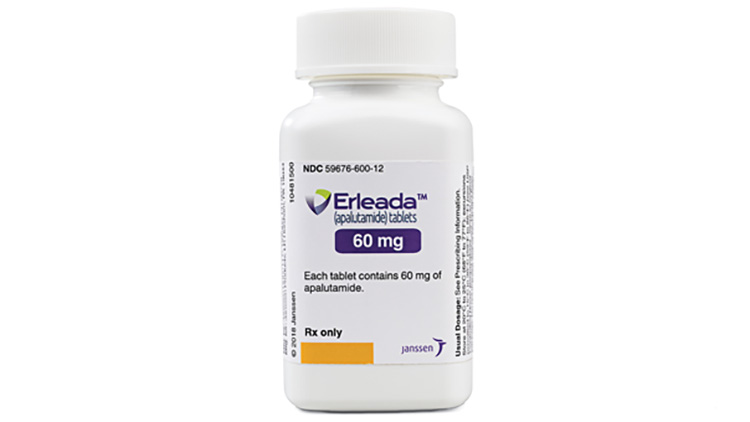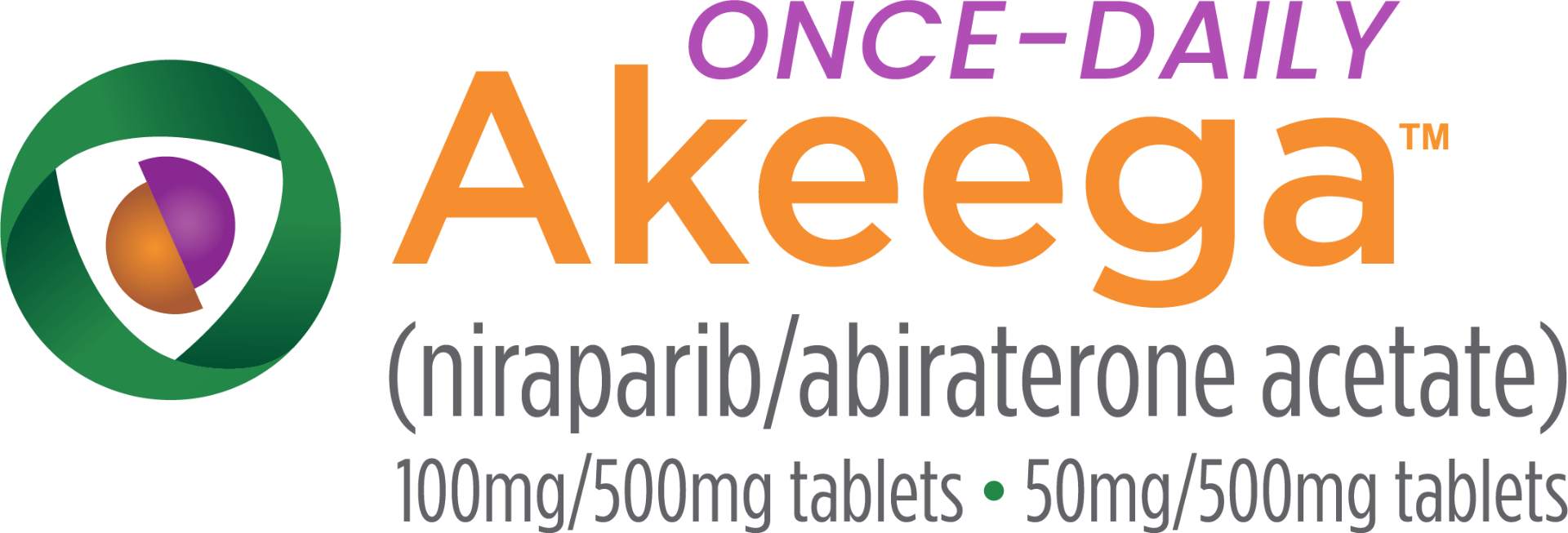Erleada (apalutamide) vs Akeega (niraparib and abiraterone acetate)
Erleada (apalutamide) vs Akeega (niraparib and abiraterone acetate)
Erleada (apalutamide) is an androgen receptor inhibitor indicated primarily for the treatment of non-metastatic castration-resistant prostate cancer (nmCRPC), working by blocking the effect of androgens, which can slow the growth of prostate cancer cells. Akeega, which combines niraparib, a PARP inhibitor, and abiraterone acetate, a CYP17 inhibitor, is used for metastatic castration-resistant prostate cancer (mCRPC) and targets cancer cells by interfering with DNA repair mechanisms and androgen biosynthesis. When deciding between Erleada and Akeega, it is crucial to consider the stage and progression of prostate cancer, as well as the specific mechanism of action of each medication, with Erleada being more suitable for non-metastatic cases and Akeega tailored for metastatic cases, always under the guidance of an oncologist.
Difference between Erleada and Akeega
| Metric | Erleada (apalutamide) | Akeega (niraparib and abiraterone acetate) |
|---|---|---|
| Generic name | Apalutamide | Niraparib and Abiraterone Acetate |
| Indications | Non-metastatic castration-resistant prostate cancer (nmCRPC), metastatic castration-sensitive prostate cancer (mCSPC) | Not specified; combination not typically used together in standard treatment protocols |
| Mechanism of action | Androgen receptor inhibitor | Niraparib: PARP inhibitor; Abiraterone Acetate: CYP17 inhibitor |
| Brand names | Erleada | Niraparib: Zejula; Abiraterone Acetate: Zytiga |
| Administrative route | Oral | Oral |
| Side effects | Fatigue, hypertension, rash, diarrhea, nausea, weight loss, arthralgia, falls, hot flush, decreased appetite, fractures | Niraparib: Thrombocytopenia, anemia, neutropenia, nausea, constipation, vomiting, abdominal pain, fatigue; Abiraterone Acetate: Hypertension, hypokalemia, edema, elevated liver enzymes, urinary tract infection |
| Contraindications | Pregnancy, severe hepatic impairment | Niraparib: Myelodysplastic syndrome/acute myeloid leukemia, severe hepatic impairment; Abiraterone Acetate: Severe hepatic impairment, pregnancy |
| Drug class | Antiandrogen | Niraparib: PARP inhibitor; Abiraterone Acetate: CYP17 inhibitor |
| Manufacturer | Janssen Biotech, Inc. | Niraparib: GlaxoSmithKline; Abiraterone Acetate: Janssen Biotech, Inc. |
Efficacy
Erleada (Apalutamide) for Prostate Cancer
Erleada (apalutamide) is a medication that has been approved for the treatment of prostate cancer in specific contexts. It is particularly efficacious in treating non-metastatic castration-resistant prostate cancer (nmCRPC). Clinical trials have demonstrated that apalutamide significantly extends metastasis-free survival in patients with nmCRPC. This is an important consideration, as delaying the spread of cancer can improve quality of life and potentially extend survival. Apalutamide works by inhibiting the action of androgens, such as testosterone, which can fuel the growth of prostate cancer cells.
Akeega (Niraparib and Abiraterone Acetate) for Prostate Cancer
Akeega combines two active substances, niraparib and abiraterone acetate, and is used in the treatment of prostate cancer. Abiraterone acetate is a well-established medication that targets androgen production, which is crucial for the growth of prostate cancer cells. When used in combination with prednisone or prednisolone, abiraterone has been shown to improve survival in men with metastatic castration-resistant prostate cancer (mCRPC). Niraparib, a PARP inhibitor, has shown promise in enhancing the efficacy of treatments like abiraterone by further interfering with the DNA repair mechanisms that cancer cells rely on to survive.
The efficacy of Akeega specifically in prostate cancer is an area of ongoing research, and it is important to note that the combination of niraparib and abiraterone acetate in Akeega is designed to leverage the complementary mechanisms of action of both drugs. However, the use of niraparib in combination with abiraterone acetate is an example of an off-label use, and clinical trials are necessary to fully understand the benefits and risks of this combination in the context of prostate cancer treatment.
In conclusion, both Erleada and Akeega represent important advancements in the treatment of prostate cancer. Erleada has established efficacy in improving metastasis-free survival in patients with nmCRPC, while Akeega, through its combination of niraparib and abiraterone acetate, is being investigated for its potential to enhance outcomes in patients with mCRPC. Patients and healthcare providers should consider the most current research and clinical guidelines when evaluating these treatments for prostate cancer.
Regulatory Agency Approvals
Erleada
-
European Medical Agency (EMA), European Union

-
Food and Drug Administration (FDA), USA

-
Health Canada

-
Therapeutic Goods Administration (TGA), Australia

Akeega
-
European Medical Agency (EMA), European Union

-
Food and Drug Administration (FDA), USA

Access Erleada or Akeega today
If Erleada or Akeega are not approved or available in your country (e.g. due to supply issues), you can access them via Everyone.org.
How it works

Make an enquiry
Choose the medicine you want to buy, answer a couple of questions, and upload your prescription to speed things up. We’ll get back to you within 24 hours.


Make an enquiry
Choose the medicine you want to buy, answer a couple of questions, and upload your prescription to speed things up. We’ll get back to you within 24 hours.


Breeze through the paperwork
We'll guide you through the required documents for importing unapproved medicine, ensuring you have all the necessary information.


Get a personalized quote
We’ll prepare a quote for you, including medicine costs and any shipping, administrative, or import fees that may apply.


Receive your medicine
Accept the quote and we’ll handle the rest - sourcing and safely delivering your medicine.

Some text on this page has been automatically generated. Speak to your physician before you start a new treatment or medication.
Let's talk
If you have any questions, call us or send us a message through WhatsApp or email:
Contact us




